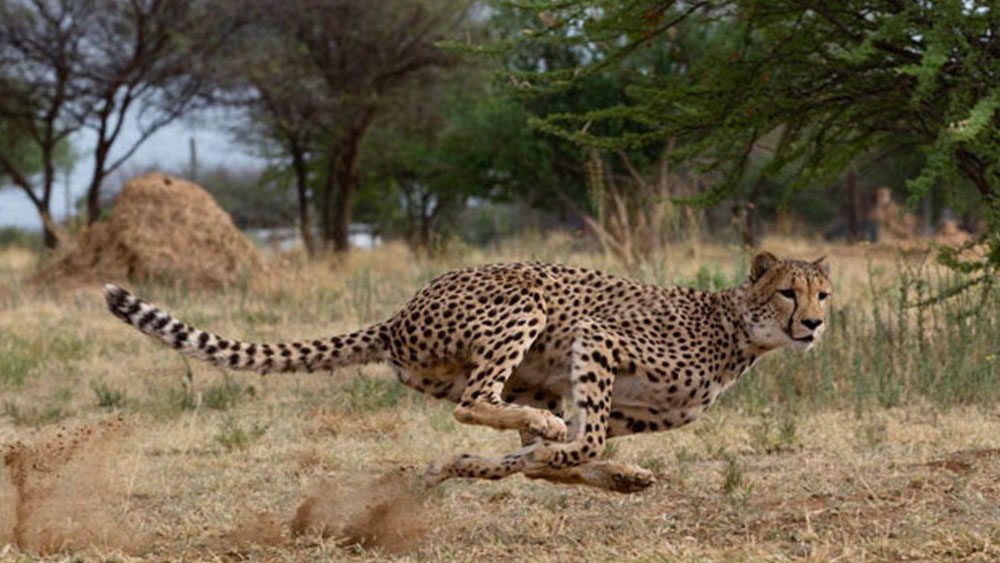Why Do Cheetahs Hunt During the Day?
-

- by Amy Cocksedge January 13, 2021

This post was broadcasted from Cheetah Conservation Fund Canada.
While most African cats are nocturnal hunters, cheetahs do things a little differently. Cheetahs are considered “crepuscular” hunters, meaning they hunt at dawn and dusk. They most often hunt between 6:00 and 10:00 in the morning, and 16:00 and 18:00 in the evening. Some of the species they hunt include gazelle, springbok, and impala. But many nocturnal predators, such as lions and leopards, also eat these species. So, why do cheetahs choose to hunt during the day?
One of the main explanations scientists have uncovered for why cheetah hunt during the day is the absence of other large, nocturnal predators. Predation plays a major role in shaping animal behaviours. Though cheetahs themselves are predators, they are also prey to larger, stronger African predators. This means they make decisions that will allow them to eat while avoiding being on someone else’s menu. Lions, leopards, and hyenas have been found to influence cheetah hunting behaviour. In fact, studies have shown that on reserves without lions, cheetahs will show higher levels of nocturnal activity when compared to the activity of cheetahs on reserves that do have lions.
Diurnal hunting behaviour in cheetahs is common in areas with large competitors. Reducing overlapping hunting periods with other predators also increases the chances of hunting success. Cheetahs rely on their speed rather than strength for hunting. This means that stronger predators, such as lions, leopards, and hyenas, can outcompete cheetahs for prey. Studies have also shown that these species have improved hunting success on darker nights. Avoiding overlapping hunting times reduces the chances of competition with other predators and increases the chances that the cheetahs will have a successful outcome.
Another risk of hunting at night is “kleptoparasitism” – where another species steals the catch. Studies have found that kleptoparasitism on cheetah catches is more common at night than during the day. This results in cheetahs having shorter feeding bouts and thus less food. Hunting during the day reduces the chances of having their catch stolen.
While avoiding nocturnal hunting has its advantages, cheetahs must also avoid the extreme heat of diurnal hunting. Studies on the body heat of cheetahs have shown that their temperatures spike following a hunt, as they have exerted themselves during their high-speed chase. This would be exacerbated if these hunts took place during the hottest point of the day. To avoid this, cheetahs most often hunt during dawn and dusk when temperatures are cooler.
While cheetahs were previously thought to be solely diurnal hunters, recently studies have found that a cheetah already on the move will hunt opportunistically. This has been observed to take place both during the midday heat and in total darkness. As such, some scientists hypothesize that cheetahs will in fact hunt whenever they are active, and rather the presence of other predators and midday heat affects cheetah activity itself and rather than hunting activity specifically.
Despite the complications of predation, competition, kleptoparasitism, and extreme heat, cheetahs have found a way to be successful hunters and survive in the African wild.
References available on request
Related Reading
-
November 21, 2025
Connecting Women in STEM: Reflections from OWSD Namibia 2025 conference




